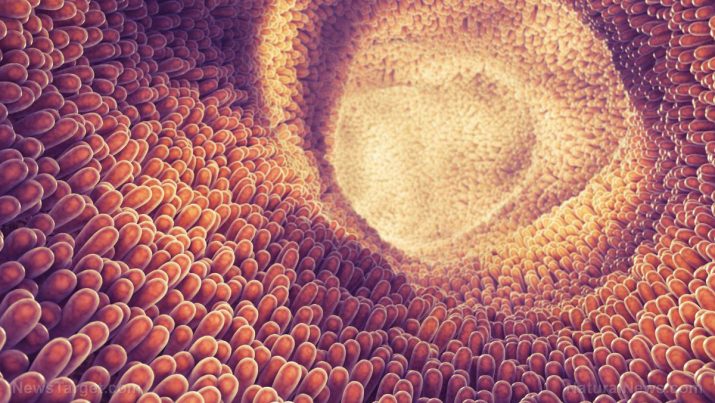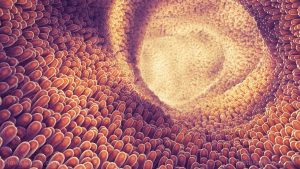
Leiomyosarcoma – causes, side effects and treatments at NaturalPedia.com
Thursday, May 03, 2018 by Janine Acero
http://www.naturalpedia.com/leiomyosarcoma-causes-side-effects-and-treatments-at-naturalpedia-com.html

Leiomyosarcoma (LMS) is a type of soft tissue sarcoma, or malignant tumor that originates in smooth muscle. Soft tissue sarcomas can develop in muscle, fat, blood vessels, or any of the other tissues that support, surround, and protect the organs of the body.
LMS is most common in the uterus, abdomen, or pelvis, but the exact cause is unknown. It has been speculated that genetic factors contribute to the development of LMS.
Current research suggests that abnormalities of DNA, which is the carrier of the body’s genetic code, are the underlying basis of cellular malignant transformation. These abnormal genetic changes may occur spontaneously for unknown reasons or, more rarely, may be inherited.

Known symptoms and risk factors for leiomyosarcoma
Most cases of LMS are diagnosed after a person develops symptoms, which may include:
- A lump or swelling
- Abdominal discomfort or bloating
- Fatigue
- Fever
- Weight loss
- Malaise
- Nausea
- Hematemesis (vomiting of blood)
- Swelling or pain in any area of the body
- Bleeding in the gastrointestinal tract
- Melena (black, tarry foul-smelling stool)
- Abnormal vaginal discharge
- Abnormal bleeding from the uterus and the vagina
- A change in bladder or bowel habits
Note that these symptoms can also be caused by conditions other than cancer.
Most forms of LMS are aggressive tumors that may metastasize to other areas of the body such as the lungs or liver, potentially causing life-threatening complications. LMS also has a high risk of recurring after treatment, if not diagnosed early.
Age is considered a risk factor for LMS, most commonly targeting people in their 70s.
Body systems harmed by leiomyosarcoma
LMS is most common in the uterus, abdomen, or pelvis. Although the exact cause is unknown, LMS accounts for between 10 percent and 20 percent of all soft tissue sarcomas. In its metastatic state, leiomyosarcoma most commonly spreads to the bloodstream, lung and liver.
Food items or nutrients that may prevent leiomyosarcoma
The following are some of the foods and nutrients necessary for avoiding certain types of cancer, including LMS:
- Garlic – One clove of garlic per day is the recommended intake to reap its benefits, which include antibacterial properties, enhanced DNA repair, and a reduction in cancer cells spreading.
- Green tea – Green tea is an excellent antioxidant, and it’s known to help protect against metastasis of certain kinds of cancer. Green tea also contains polyphenols that have antioxidant and anti-inflammatory properties.
- Turmeric – The curcumin in turmeric is known to help kill cancer cells and slow tumor growth.
- Vitamin D – Certain types of cancer such as breast cancer, can have a higher risk of occurring with vitamin D deficiency. The recommended daily amount of vitamin D is 15 mg. Vitamin D can be absorbed through sunlight, or by consuming more fatty fish, egg yolks and fortified milk.
- Vitamin E – A strong antioxidant, vitamin E can significantly decrease the risk for prostate, colon, and lung cancers. The recommended daily amount of vitamin E is 8 to 10 mg. You can also eat almonds, avocado, broccoli, beans, mango, and spinach to boost your vitamin E levels.
Treatment, management options for leiomyosarcoma
The usual treatment for a LMS is surgery, wherever possible, to remove the tumor. This may be followed by radiotherapy to reduce the chance of the cancer coming back.
Chemotherapy is also used for some cases of LMS. It’s mainly used to treat a recurring LMS, or advanced or metastatic LMS. Chemotherapy may also sometimes be used after surgery to try to reduce the chances of it coming back.
Lifestyle changes such as regular exercise, sunlight exposure, deep breathing, adequate consumption of clean water, and deep, restful sleep are also important to encourage the rebuilding, detoxifying and healing of the body after surgery.
Where to learn more
- Farmers at higher risk of developing various cancers caused by pesticide exposure
- Pesticides in the home will raise your child’s risk of getting cancer
- Top Ways Mistletoe Extract Helps Fight Cancer
- Don’t fall victim to cancer; learn how to battle the disease and win
- The Amazing Cancer-Fighting Powers of Turmeric
Summary
Leiomyosarcoma is a type of soft tissue sarcoma that commonly occurs in the uterus, abdomen, or pelvis. Most forms of leiomyosarcoma are aggressive tumors and may spread to the bloodstream, lung and liver.
The exact cause of leiomyosarcoma is unknown, but genetic factors may contribute to its development.
Sources include:
Tagged Under: Tags: Leiomyosarcoma





